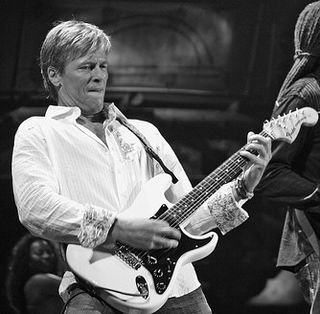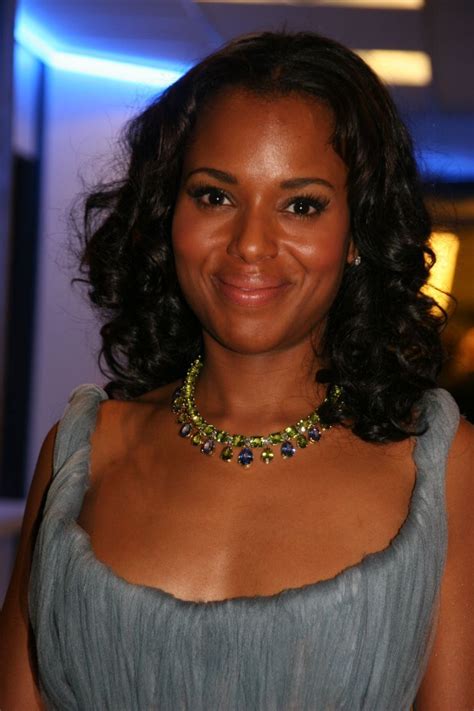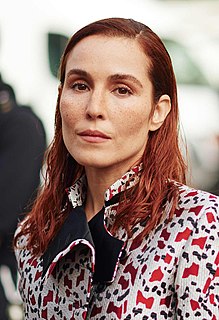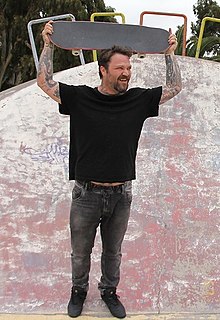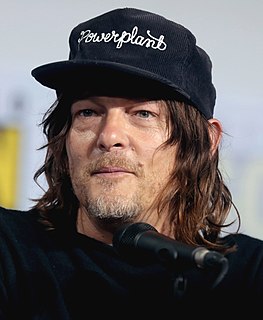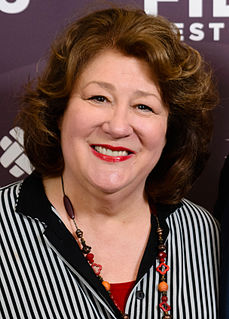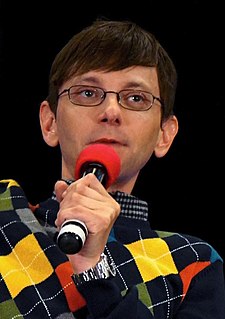A Quote by Alan Cumming
The thing with film and theater is that you always know the story so you can play certain cues in each scene with the knowledge that you know where the story's going to end and how it's going to go. But on television nobody knows what's going to happen, even the writers.
Related Quotes
Usually, you get a script and you have the whole story. All the acts are there, for a play. You know what happens in the first, second and third acts, and you know how it starts, where you go and where it finishes. [With American Horror Story: Asylum], it's a whole new experience. I don't know where it's going, and I don't know what's going to happen next. It's been an interesting way to work. It's made me work in a much more fluid, braver way, just taking every chance that comes along.
I love television because it's the most alive, because you don't know how it's going to end. It's a living thing. Sometimes the writers are watching you to see how things will unfold. Sometimes the writers have written it, and you come to it, and they have to change their way of going because of what you've done.
That's what I love about documentary filmmaking, we never know where the story is going, we don't know what is going to happen next, and we're inside a culture of people that you have to figure out in many ways. It's a relationship between what you thought might have been the story, and what happens in the 'field.'
Listen she said, everything ends, every single relationship you will ever have in your lifetime is going to end.... I'll die, you'll die, you'll get tired of each other. You don't always know how it's going to happen, but it is always going to happen. So stop trying to make everything permanent, it doesn't work. I want you to go out there and find some nice man you have no intention of spending the rest of your life with. You can be very, very happy with people you aren't going to marry.
So here I am, sending a two-ounce mouse down into a dungeon with a sewing needle to save a human princess, and I don't know how in the world he's going to do it. I have no idea. That was the first time it occurred to me that writing the story was roughly equivalent to Despereaux's descent into the dungeon. I was tremendously aware of that as I was writing. I thought, "I have to be brave or else I'm not going to be able to tell it." But it's the only way that I can write. If I know what's going to happen, I'm not interested in telling the story.
None of our films look alike, we are very dialectical in our approach to each one, and 'Hoop Dreams' was no exception. That's what I love about documentary filmmaking, we never know where the story is going, we don't know what is going to happen next, and we're inside a culture of people that you have to figure out in many ways. It's a relationship between what you thought might have been the story, and what happens in the 'field.' Out of that comes the story, which was exactly what happened with 'Hoop Dreams.'
A film has a beginning, middle, and an end. There is a certain amount of time that you have to embody these people. You know the entire story arch. But on TV, you have to let your guard down. You don't know how long the show is going to last. There is this excitement that comes with developing a character long-term.

